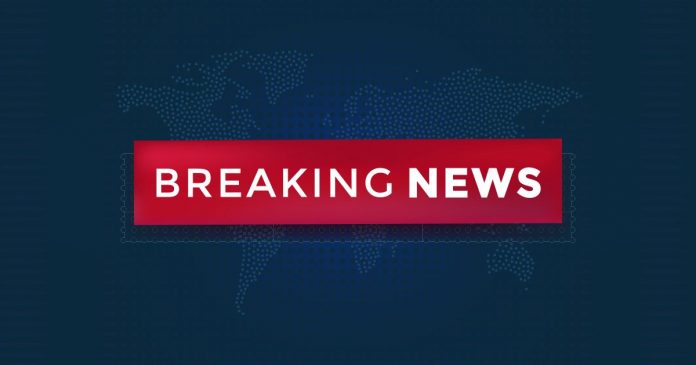Anti-corruption issues in the field of education

Corruption is a serious crime that undermines social and economic development in all societies. Not a single country, not a single region, not a single society is immune from corruption.
Corruption is a global problem of our time, which to some extent exists in all countries of the world. This negative phenomenon is not only a legal, social, but also a political and moral problem. Corruption in the country also negatively affects on the position of the state in the international community, on the rating of the country. Therefore, the eradication of corruption is the number one task for the Republic of Uzbekistan today.
Corruption more or less have spread almost to the all spheres of life in the society of the Republic of Uzbekistan. Education as an essential element of the social sphere, unfortunately, was no exception.
At the present stage of the development of the Republic of Uzbekistan in the field of countering corruption, the road has been long and difficult path; currently, emphasis is placed on the formation of an anti-corruption legal awareness in the society, that is, internal rejection of corruption in all its manifestations. In solving this problem, the key role belongs to educational institutions.
In science, several terms are used to define corruption in education: “corruption in the field of education”, “corruption in the education system”, “corruption in the education sector”, “corruption in postgraduate education”, “corruption in universities”, “corruption in schools”, “corruption in kindergartens”.
According to foreign scholars, “the definition of corruption in the field of education covers the abuse of power to achieve material goals, and in a broader interpretation means the improper use or abuse of public position or official duties for personal gain or for private gain.” Corruption in education is defined as “abuse of authority for personal, including material, benefits”.
At the same time, today the main task of the state anti-corruption policy is to form an internal conviction among each of the citizens of the country that being a corrupt official is not only dangerous, but also shameful, and living honestly is profitable and prestigious. It is never too late to shape the qualities of an honest and dignified person’s life, but rejection of breaking the law should be brought up from the school bench — in schools, in higher educational institutions, and in secondary schools, and, of course, at work and in the family.
The main causes of corruption in education are the following:
- low level of training of applicants to secondary special and higher educational institutions, but at the same time the desire of parents for their children to study in prestigious educational institutions;
- lack of motivation for students to study independently, which forces them to look for easy solutions when passing exams, obtaining diplomas, etc.;
- insufficient wages of teachers and teachers of educational institutions, which leads to the search for an additional source of income, at the same time, low competence of teachers, which also affects the launch of the corruption mechanism;
- inadequate funding for the education system. Not getting in sufficient quantities for the implementation of educational activities of financial resources, educational institutions are forced to seek other sources of financing.
Not all the reasons for the occurrence of corruption in education are listed, in connection with which is arisenthe question for need the effective measures for addressing these causes.
In recent years, a number of measures have been taken in Uzbekistan aimed at preventing and countering corruption.
In the state is implementing a set of various organizational and legal measures in order to сombat corruption. Particular attention is paid to identifying the causes and conditions conducive to corruption, and on this basis, the introduction of new forms of combating corruption.
Due attention is paid to improving preventive work anti-corruption. This is especially true of the educational sphere, in which there are currently many problems related with the manifestation of corruption.
In the shaping of anti-corruption behavior of students and university workers, the study of the issues and conditions which sustained corruption and its suppression in its infancy, a large role is given to higher education institutions. Corruption manifestations in higher education institutions may begin with admission to it, and then acquire additional services, starting with exam fees and ending with entering to Phd and defending a dissertation.
For example, in 2018, 83 criminal cases were opened in Uzbekistan on corruption, fraud and abuse of power in the education system. According to the information and analytical multimedia center of the General Prosecutor’s Office of the Republic of Uzbekistan, 16 of them were committed in secondary schools, 31 – in universities, 36 – in colleges and academic lyceums. The analysis showed that basically the facts of corruption accounted for at the beginning of the acceptance of documents in higher educational institutions. During this period, 49 criminal cases have been instituted.
In the Republic of Uzbekistan, it is paid great attention to the issues of normative consolidation of approaches to the fight against corruption. Over the years of independence, a number of regulatory legal acts in this area have been adopted.
In particular, the Law of the Republic of Uzbekistan “On Combating Corruption” adopted on January 3, 2017 was a big step on the issue of combating and preventing corruption. With regard to the field of education, article 18 of this Law enshrines the rule on legal training and education in the field of combating corruption in educational institutions.
On February 2, 2017 in order to implement this Law the Resolution of the President of the Republic of Uzbekistan No 2752 was adopted, which approved the State Anti-Corruption Program for 2017-2018.
Then, in order to solve strategic tasks for the further growth of the economy, improving the well-being of the people, improving the investment climate, based on the requirements of new systemic measures.
On ensuring effective implementation of the state policy in the field of combating corruption, as well as eliminating the causes and conditions of corruption, the Decree of the President of the Republic of Uzbekistan “On measures to further improve the system of combating corruption in the Republic of Uzbekistan” was adopted on May 29, 2019.
In accordance with this decree and based on the tasks identified in the State Program for the five priority areas of development of the Republic of Uzbekistan in 2017-2021 was adopted the State Anti-corruption Program in for 2019-2020.
Under the State Program from August 1, 2019 the Anti-Corruption Project launched in the capital construction and higher education system in the anti-corruption fieldas an experiment. Within the framework of this project, the implementation of specific measures to address barriers related towith red tapeand bureaucracy, strengthening the rule of law, ensuring a fair and transparent implementation of all processes.
In this regard, the President of the Republic of Uzbekistan Shavkat Mirziyoyev during his meetings on May 24 and 28, 2019 with the heads of higher educational institutions, professors and teachers, as well as representatives of the scientific community, deeply analyzing the negative phenomena in the field of education, emphasized the danger of harm, noted that corruption is the biggest threat and the enemy’s number one for the entire education system. After all, it is a well-known fact that it is impossible to build a bright future for the country without training comprehensively highly qualified personnel.
Therefore, the creation of a healthy, free from all social vices educational and upbringing environment in our country should be our most important priority. The important task is the solving problems for preventing this, ensuring cleanlinessand transparency of the education system, in particular the eradication of corruption, which spoils its reputation.
At the same time, regulatory anti-corruption should be carried out not only at the level of state bodies and local authorities, but also at the level of individual organizations. However, for the implementation of legal acts it is necessary to implement effective measures that will contribute to the destruction of corruption mechanisms, the formation of a legal spaceand worldviews in the population. In the republic are organized the large-scale legal information events and bringing to the public the essenceand the meaning of the adopted legal acts. The important meaning is in the rigorous and timely execution of legislative acts, their prompt dissemination to performers is importantand clarification of the essence and meaning to the population.
But the population itself, mainly the younger generation, must understand that corruption is not a way to solve problems, but it is an evil that has destructive power, especially in the vital sphere, which has socio-economic importance in the development of the state-education sphere.
In particular, in the educational institutions are conductedanti-corruption classes. Also, in academic lyceumsand professional colleges are introduced special anti-corruption courses, which are based on an approved curriculum.
The Head of the Republic of Uzbekistan also instructed to strengthen anti-corruption topics in the curricula in general secondary, specialized secondary, professional and higher education.
However, at the same time, it is necessary to include anti-corruption obligations in the employment contracts of employees of educational institutions, such as: “not to allow personal interest, which may lead to a conflict of interests”, “strictly observe the rules of professional ethics”; develop in educational institutions at the level of the Code of Ethics the basic principles of anti-corruption.
The development of such principles will allow the leadership of educational institutions to influence offenders, take administrative or disciplinary measures against those who violate ethical standards, including committing corruption offenses.
In addition, one of the key tasks is the formation of the composition of educational institutions from experienced, honest and conscientious, responsible professors and teachers. It was expedient to create a “public council” at educational institutions during the entering process to the secondary special and higher educational institutions, conducting exams, assessing students’ knowledge.
There are alsotechnical measures which usedduring the taking exams in educational institutions, such as the installation of video cameras, metal detectors, equipment that disconnects communications, online broadcasts.
The methods of overcoming corruption in education can also include the following:
- strengthening criminal penalties for any, including minor cases of corrupt behavior;
- a real increase in salaries for teachers and teaching staff on the condition that they will not need to look for ways to earn money;
- development of systematic program measures to overcome corruption at the level of an educational institution, which could include the increase of active citizenship, organization of public councils, development of student self-government. Most students are afraid to report about corruption, thereby covering corruption and contributing to the spread of corruption. Students with an open civic position in a developed student government will be less tolerant of corruption;
Also, today, great importance is attached to the information transparency of educational institutions. One of the strategic tools for openness and accessibility of information is the official website, the creation of a “hot line” for receiving appeals regarding corruption in every institution of higher education.
It is important to note that, in essence, the process of eradicating the causes of corruption should begin today with each individual, his legal and civil self-determination and expression. The fight against corruption is nothing other than a struggle of citizens for their rights, for a responsible, honest and effective government, and ultimately, for a decent, safe, prosperous life.
Anjelika Shermatova,
Department on coordination of legal education and forensics
of the Ministry of Justice of the Republic of Uzbekistan
Related News

The largest halal fair in Russia will open on 14 MAY
ISLAMABAD, /DNA/ – More than 40 thousand visitors and 4.5 thousand goods according to HalalRead More

Saudi Foreign Minister to visit Pakistan
DNA ISLAMABAD: A high-level Saudi delegation, led by Foreign Minister Prince Faisal bin Farhan binRead More


Comments are Closed